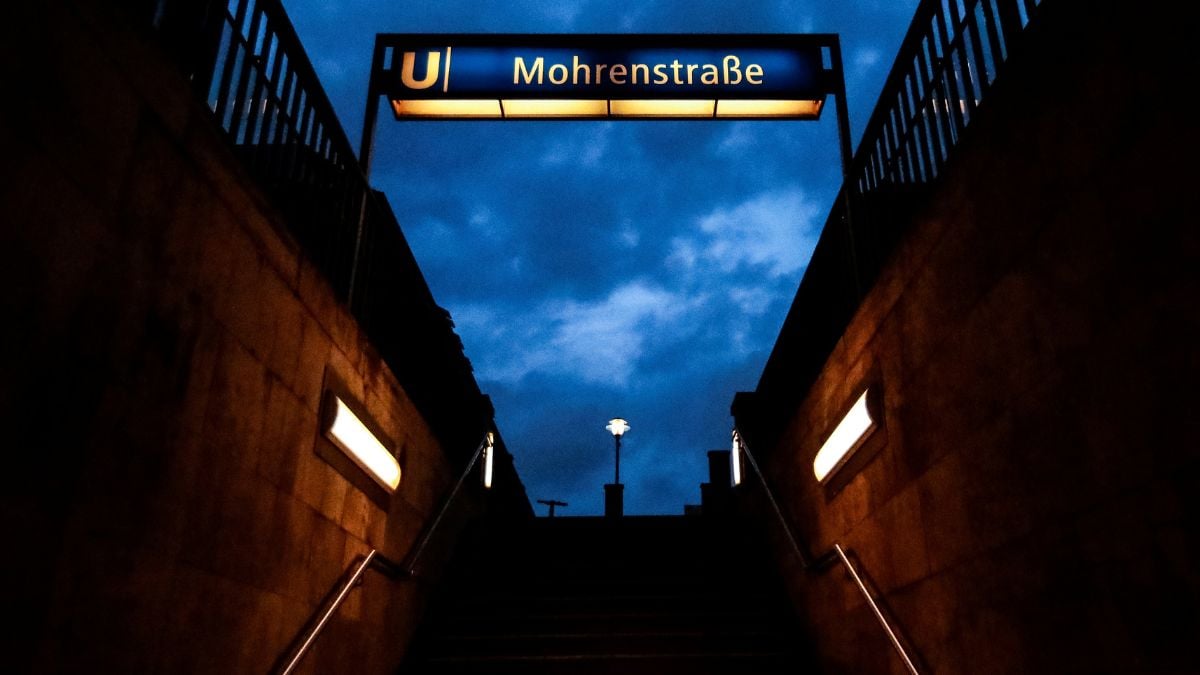Prompted by the ongoing war in Ukraine and the heightened rhetoric from Moscow, the German government is re-evaluating its preparedness for potential military conflict, including airstrikes and other large-scale crises.
This has led to Berlin embarking on an ambitious plan to enhance its civil defence infrastructure, a move reflecting a broader European trend of reactivating Cold War-era strategies to address modern threats.
Germany’s existing network of public bomb shelters is alarmingly inadequate for its population of over 84 million. With only 579 designated shelters providing space for approximately 480,000 individuals, less than 0.6 per cent of citizens can currently be accommodated in the event of a large-scale emergency.
This shortfall stems from a 2007 decision to decommission much of the country’s Cold War-era shelter infrastructure under the assumption that Europe faced minimal risk of large-scale conflict.
An entire generation may pass before Germany can fully rebuild its bunker network, warned Ralph Tiesler, head of the Federal Office for Civil Protection. The lack of preparedness is a critical concern as Russia’s aggression in Ukraine raises the specter of a broader conflict, particularly in light of Vladimir Putin’s threats toward nations supporting Kyiv militarily.
In response, Germany is taking immediate measures, such as identifying alternative spaces that can be converted into temporary shelters. These include underground car parks, subway stations, and public basements. A comprehensive mobile app is being developed to guide citizens to the nearest safe location during emergencies.
What we know about Operation Plan Germany
Germany’s readiness measures fall under a broader confidential strategy known as Operation Plan Germany. This involves federal and state governments, the military, security agencies, and emergency services coordinating to fortify the nation’s defence capabilities.
While the details of the plan remain classified, reports suggest that it includes regular consultations between military representatives and businesses to prepare for wartime scenarios.
German Defence Minister Boris Pistorius, French Defence Minister Sebastien Lecornu and British Defence Secretary John Healey attend a joint press statement after talks about strengthening security and defence in Europe, at Ministry of Defence in Berlin, Germany, November 25, 2024. File Image/Reuters
Reuters quoted a German defence ministry spokesperson who confirmed that these meetings are designed to help organisations adjust their production and logistics to withstand crises, including potential economic blackmail from adversarial powers like Russia and China.
A Nato military official highlighted the importance of such preparations, urging businesses to adopt a wartime footing to minimise vulnerabilities.
A broader trend in Europe
Germany’s efforts mirror similar initiatives across Europe, where countries are proactively enhancing their civil defence capabilities.
Sweden and Finland: Modernising total defence
Sweden recently
distributed an updated version of its Cold War-era civil defence booklet, In Case of Crisis or War, to households nationwide. The guide, twice the size of its predecessor, includes detailed instructions on handling military conflict and surviving power outages.
It prominently states, “If Sweden is attacked by another country, we will never give up. All information to the effect that resistance is to cease is false.”
Sweden’s Civil Defence Minister Carl-Oskar Bohlin has warned that “there could be war in Sweden,” urging faster progress in rebuilding the country’s civil defence infrastructure.
Meanwhile, Finland, which shares a long border with Russia, has maintained robust defence measures since World War II.
A new digital guide outlines steps for citizens to endure prolonged crises, including sub-zero temperatures and nuclear incidents. Essential items like iodine tablets, backup power supplies, and non-perishable foods are part of Finland’s recommended survival checklist.
Poland and Norway: Setting standards
Poland has taken a proactive approach by identifying temporary shelters such as metro stations and tunnels, which could protect its entire population in emergencies. From 2026, all new buildings in Poland will be required by law to include access to shelters.
Andrea Lindholz, a member of Germany’s opposition Christian Democratic Union (CDU), praised Poland’s foresight, stating, “We need to significantly increase capacity in Germany. Even though we hope this situation doesn’t arise, we must be prepared to protect the public in the event of an emergency.”
Also Read |
Russia begins production of mobile bomb shelters capable of withstanding nuclear, chemical threats
Norway, which began similar campaigns in 2018, recently mailed a detailed self-preparedness guide to 2.2 million households.
This guide recommends citizens store enough food, water, and medicine to survive independently for at least three days. Norway’s Directorate for Civil Protection stated the increased risks posed by climate change, extreme weather, and geopolitical instability.
What Germany is planning
While long-term efforts focus on rebuilding the country’s shelter network, Germany is pursuing interim solutions to address its pressing needs.
In addition to identifying metro stations and public buildings for conversion, citizens are being encouraged to create makeshift shelters at home. Basements, in particular, are being promoted as viable options for temporary safety.
To facilitate these measures, Germany plans to launch a public awareness campaign. A civil protection app, currently under development, will provide real-time information on available shelters and offer advice on crisis management. This is part of a broader strategy to ensure citizens are better equipped to handle emergencies, from airstrikes to natural disasters.
Also Watch:
However, critics argue that Germany’s response is fragmented compared to the comprehensive systems seen in countries like Finland and Poland.
The renewed focus on civil defence across Europe highlights the growing realisation that conflict is no longer a distant possibility. Germany’s efforts, though belated, are a critical step toward safeguarding its population.
Also Read |
Russia warns West of its ’nuclear prowess’ at UN, says Europe plans to throw itself in ‘suicidal escapade’
With inputs from agencies
